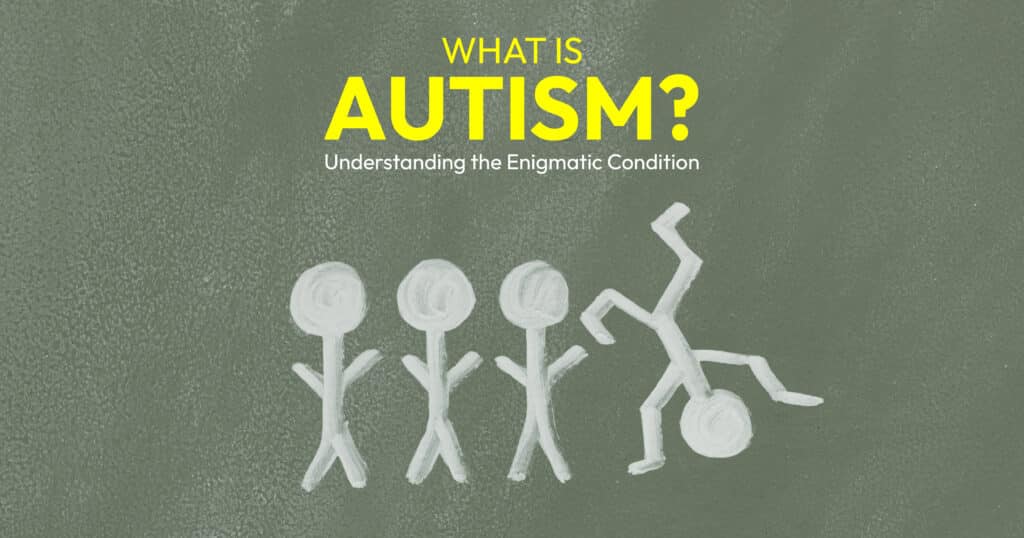
Autism, a complex and enigmatic condition, has garnered significant attention in recent years. With the growing prevalence of autism spectrum disorders (ASDs), it is important for individuals to gain a deeper understanding of this unique condition. In this article, we will delve into the intricacies of autism, exploring its definition, characteristics, and debunking common misconceptions. So, let’s embark on this informative journey into the world of autism and unravel its mysteries.
What is Autism? A Closer Look into the Condition
Autism, or autism spectrum disorder (ASD), is a developmental disorder that affects an individual’s ability to interact and communicate effectively with others. It is characterized by a broad range of challenges in social skills, repetitive behaviors, speech and nonverbal communication, and sensory sensitivities. While these challenges may vary from person to person, they can significantly impact an individual’s daily life.
Autism is a spectrum disorder, meaning that it affects individuals differently and to varying degrees. Some individuals with autism may have mild symptoms and lead independent lives, while others may require extensive support to navigate their daily activities. It is important to recognize that autism is not a disease or a condition that needs to be cured. Rather, it is a neurological variation that shapes an individual’s perception of the world.
Mental Health Center of San Diego
Unveiling the Characteristics of Autism
Understanding the characteristics of autism is crucial in fostering acceptance and empathy towards individuals with this condition. While the symptoms of autism can be diverse, some common characteristics include:
Social Interaction Challenges:
- Difficulty in establishing and maintaining eye contact
- Limited ability to understand and respond to social cues
- Discomfort or unease in social situations
Communication Difficulties:
- Delayed language development or the absence of speech
- Limited response to gestures, facial expressions, and tone of voice
- Difficulty expressing needs and emotions
Repetitive Behaviors and Interests:
- Engaging in repetitive movements, such as hand-flapping or rocking
- Developing intense and narrow interests
- Resistance to change in routines or rituals
Sensory Sensitivities:
- Hypersensitivity or hyposensitivity to certain stimuli, such as light, sound, or touch
- Overwhelming reactions to sensory input
- Seeking specific sensory experiences
While these characteristics are common in individuals with autism, it is essential to remember that each person is unique, with their own set of strengths and challenges.
Mental Health Center of San Diego
Debunking Misconceptions about Autism
Autism has often been plagued by myths and misconceptions, leading to stereotypes and misunderstandings. Let’s address some of these misconceptions and shed light on the reality of autism:
Autism is caused by bad parenting or vaccines:
- The cause of autism is not related to parenting style or vaccines. Extensive research has debunked these theories, and autism is now widely recognized as a result of complex genetic and environmental factors.
All individuals with autism are geniuses or savants:
- While some individuals with autism may possess exceptional skills or talents in specific areas, such as music or math, it is not a universal characteristic. Autism affects individuals across the intellectual spectrum, and abilities vary greatly.
Autism can be cured:
- Autism is not a condition that needs to be cured. It is a part of an individual’s identity and should be embraced rather than eradicated. The focus should be on providing support and accommodations to enable individuals with autism to thrive.
Individuals with autism lack empathy:
- On the contrary, individuals with autism can experience and express empathy, albeit in unique ways. They may struggle with recognizing and interpreting social cues, but this does not diminish their capacity for empathy.
Frequently Asked Questions (FAQs) about Autism
Is autism a lifelong condition?
Yes, autism is a lifelong condition. However, with appropriate support and interventions, individuals with autism can lead fulfilling and independent lives.
Can autism be diagnosed at any age?
Autism can be diagnosed in early childhood, but it can also be diagnosed later in life. Sometimes, individuals may go undiagnosed until adulthood, especially if their symptoms are mild.
What causes autism?
The exact cause of autism is still unknown. However, research suggests a combination of genetic and environmental factors play a role in its development.
How can I support someone with autism?
Supporting someone with autism involves creating a nurturing and inclusive environment, providing clear communication, and understanding their individual needs and preferences. Educating oneself about autism and promoting empathy is crucial.
I just wish that there were more mental health facilities like the Mental Health Center of San Diego. From a mother, if you are looking for help for your adult child with mental illness, I highly recommend looking into this facility. You will not regret it. – Kristie Hodson
Mental Health Center of San Diego
Embracing Neurodiversity
In conclusion, autism is a complex and diverse condition that requires us to foster understanding and acceptance. By debunking misconceptions and exploring the characteristics of autism, we can create a society that embraces neurodiversity and ensures equal opportunities for individuals with autism. Remember, autism is not a tragedy; it is simply a different way of perceiving the world. Let us celebrate the unique strengths and talents of individuals with autism and endeavor to create a world where everyone can flourish.
Get in touch with the Mental Health Center of San Diego, where we are dedicated to providing compassionate and comprehensive mental health care services to individuals of all ages in San Diego and the surrounding communities. Our team of experienced and highly skilled mental health professionals is here to guide you or your loved one on their journey to health.








